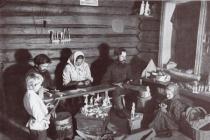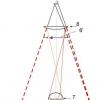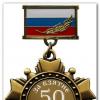As part of the special project MediaProfi » Artyom Samoilov, music editor of Radio ROKS, toldMediaBusiness about the technical and creative side of the work, about who decides the fate of Beyonce on the air and where people come from in the profession of music editor on the radio. Recall that the first cycle of "MediaProfi" dedicated to the topic of radio and implemented jointly with the Radio Committee.
There is an opinion that a music editor is exactly the person who decides what will sound in this hour, for example.
Well, it's too big a statement that I decide the fate of Beyonce on the air (laughs). In any case, each radio station has a certain set of music and a set of rules according to which it gets on the air, that is, it is rotated. Of course, it is not specifically written anywhere that the Rolling Stones must be on the air at the tenth hour. But there is some rule according to which 10 songs can get into this hour and the first in line is the Rolling Stones. So she gets on the air. In the next similar situation, the song that is second in line, and so on, will be aired.
- Who creates these rules?
Station management, including the music editor. We define our objectives and decide what we need to achieve them. But even with the same rules, as I said, different people will create different sounding stations.
Where do people in your profession come from? Do they train music editors in our country?
So historically, it probably happened that they coped without professional courses And curricula. During the early days of the industry, early music editors operated almost blindly. Now the radio stations have gained experience and requirements for the profession and the air. And we are self-taught, because it has become easier to find out what people are doing in the same States where they have been doing commercial broadcasting for thirty or forty years. They come here and share their experience. Yes, and among ourselves in Kyiv, we communicate in the profession. It happens that you have a problem that needs to be solved. And a colleague ran into her earlier and he has turnkey solution, simple and classy. Or, on the contrary, someone says: we have a problem, we are fighting - we can’t do it in any way. And you say - yes, it's easy, 15 minutes - and you're done, because you already know how. Of course, a good music editor, tech-savvy, will solve any problem. However, if there is a ready-made solution that will save time and effort, then why not use it? It turns out that there is training, but not classical. And through the exchange of experience within the profession.
- How did you get into the profession?
Like 90% of music editors, I used to work in radio. First - the host of the broadcast, then - in other positions. Once a situation arose when a music editor quit, and it was necessary to look for a replacement for him. For me, this job was interesting and technically simple, since I am a programmer by education, and I had experience with programming. The management offered to try myself in this direction, and I agreed.
I had a feeling before the interview that a music editor is a creative profession, and we are talking about programming ...
Creative, of course. Just on the one hand, programming is a set of clear rules by which the radio station air is built: we take this, this and this, and combine it. And, already if you approach this globally, it doesn’t make such a big difference whether you program the site with scripts or broadcast with songs. It's all programming, planning.
On the other hand, it is a creative process. As in cooking, there is a recipe and there is a chef. Two different chefs from the same ingredients can, after all, make, if not completely different, then certainly very different dishes from each other. So we have - there are rules, but according to these rules, two different music editors can make two completely different stations.
At that time, programming was not new to me. Only in addition to developing programs, I also took up on-air programming. It's very interesting actually - you program the broadcast, and then you hear how it all sounds. I won't say it was easy, but it was very interesting.
- And how did you first learn the profession of a music editor?
Learned in several ways. At that time, I already had colleagues, acquaintances, friends who worked as music editors for a long time. And the first time I really bothered them. In every job there is a standard “rake” that all newcomers have stepped on, are stepping on, and will step on. And which are better, if possible, to bypass.
- For example?
Basically - some technical points, rules. And how to do it? How about that? Someone came to this with their mind, bumps and experience over several years. I tried to skip this stage with minimal losses.
- And what are these moments, the rules?
For example, how often can we put on this or that song, what kind of music we put on in the morning, what kind in the evening, and so on.
BBC legend Tony Blackburn, in an interview in honor of his anniversary, complained that the list of songs for rotation by British broadcasters is very narrow, that it needs to be expanded. How limited are our radio stations in this matter?
We have it, let's say, optimal, this set of songs in the playlist. Optimal both to feel the variety, and at the same time to meet the expectations of the radio listener. Much depends, of course, on the radio station. For example, I do not welcome "random songs".
- In what sense - "random"?
This is when a song gets on the air according to the criterion “also a good song”, “let it be”. Sometimes you listen to the radio and you can’t understand why this song appeared here, in this particular place on the air of this radio station. It seems to be not bad, well sung, well-mixed, but the fact is that the listeners of this station somehow don't really need it - that's what they need. And we are trying to balance between making the broadcast recognizable and not becoming monotonous. It is important to get each song in the expectation of the listener, no matter if it is new or old. Of course, you can always push yourself into limits that will bother you, or vice versa - expand them so much that the station will cease to be recognizable and, as a result, beloved.
What are the requirements for the work of a music editor today? Knowledge of music, knowledge of technology, knowledge of the basics of programming ... What else?
Technical education, in fact, is not required at all. It turned out so well that I had it and yes, in some moments it turned out to be easier. But there are many examples when people with liberal education work in this profession and make radio stations certainly not worse. The technical part can be learned.
And yet, if you had to select a person for the vacancy of a music editor, what would be your requirements for the candidate?
I would insist on the experience of working on the radio in the program part - the presenter of the air, the producer, etc. Such a person already has some kind of picture of the air, which, as a music editor, is only expanding and supplementing. Theoretically, you can take a person from the street with a great desire to work and teach "from and to". But this takes time, which, as a rule, is not available, because the vacancy opens when the current music editor is about to leave. And we do not have a year or two for a person from the street to penetrate. And when a person has worked for a year or two or three on the air, he sees how the songs stand, he already understands the system. And everything that changes when he becomes a music editor - he begins to manage this system.
In addition, this work requires some perseverance. It's one thing you - the host of the show, bright, incendiary, worked 3 hours of air - and left. Such a person is unlikely to work as a music editor. Here the work must be done slowly, very carefully.
- What are the duties of a music editor? It's a 24 hour X 7 day job
- And how are these new songs usually collected, from what sources?
Depending on the radio station. If this is Radio ROKS, then we look at the charts. Let's say we are interested in the music of the 70s -80s - we look at the charts of those years - have we missed any song. So painstaking technical work. There is also Full time job with music for editing. For example, after the song, you can put one beat “Radio ROKS!”, Or you can put the second, third, etc. You can wait until the song ends, or you can cut it off in some interesting way.
- Previously, it was done, it seems, by the hosts of the live broadcast ...
Somewhere DJs still do it, but we have a music editor. I know this scheme, when the music editor simply uploads a certain number of songs for each hour, and the host himself arranges them within the framework of every 60 minutes, selects the breaks himself and decides how to cut the song or not to cut it at all. And for each song we have optimal markups made by the music editor - here we cut off the song and put such and such an interruption. But, if the DJ sees that in some case he can make not the optimal, but an ideally beautiful version, then he can correct this markup a little, that is, move the break and let the song sound further or make it shorter, cut it off.
We have all the joints of the songs by default are good. They are proven, listened to more than once. But it happens that something can be improved once at the junction of this and this song right now. This is the beauty of a living person on the air, because the process is creative.
You're talking about cutting songs, but what about mixing them? Do people do it, do you line it up or does a special program do the mix?
We don't do mixing because, first of all, our format is rock songs that people want to listen to from start to finish, because it's a complete piece. Therefore, our task is to beautifully complete the song, say what you need or put an interruption with the call signs of the radio station and beautifully go to the next song. Perhaps this makes it easier for us - that we do not need to pick up a hard mix. On other radios, this task can be critical.
How long does it take to make a playlist?
Maybe an hour. Or maybe the whole day. Differently. There is a regular day of broadcasting - night, morning show, line presenters, evening. And there are special broadcasts, when all the elements of the day need to be built almost from scratch. For example, I planned an online broadcast of a concert on the air. Or some special morning broadcast. It happens that a special broadcast goes on all day. This was our morning show's birthday. In those days when the program grid changes, it is a concern for everyone, and the task of the music editor is to provide everything technically.
- Do you listen to the air often?
I try to do this as often as possible. It's one thing to sit at lunch and imagine how the songs will sound in the evening. And the other thing is to turn on the radio station in the evening and hear "from the side." I listen critically, analyze - did the songs blend well, for example, or not? If not, then I mark myself, I come to work and look - and if I do it this way or this way, how will it be better? It is necessary to listen to the broadcast, because you get a completely different impression, and it is easier to control yourself.
You don’t get tired of music, there is no burnout or a situation when the musical taste of the music editor fails?
I don't see any point in working as a music editor at all if music can be annoying. In my experience, music editors get people who have a good attitude towards the music they work with. If this is not a random person for a couple of months, of course. You don’t need to be a fan of this music, you don’t need to love it devotedly and passionately, but if you don’t like it and are frankly not interesting, it’s difficult to work. And if the work causes discomfort to a person, this will 100% affect the quality.
As for taste, this is a loose concept. Rather, other professional feelings are developed in the process of work. For example, after a few years, you can quickly give a preliminary assessment of whether the song of this station will fit or not. I mean in terms of sound, vocals and so on. The radio station has been on the air for four years now, now it’s easier for us, but at first, of course, we checked ourselves - double-checked at every step.
- Checked how?
We regularly conduct music testing. This is done by a separate company, to which we give music and from which we receive the opinions of people, on the basis of which we build our musical policy.
And what place does a music editor occupy in the radio hierarchy? Which of his colleagues does he come into contact with at work or is it a fairly autonomous profession in conjunction with a music editor and program director?
We all interact with everyone. It is clear that the music editor forms the schedule, and the presenter adheres to it. In turn, the music editor is instructed by the program director or the director of the station, depending on the situation, because the music editor in terms of linking the air is a technical position. Where the program comes out is decided by the program director. Where some new elements appear - also he. The task of a music editor is to make it beautiful.
Besides, it's creatively interesting to do something and then listen to it from the outside. When you do your work, it's an interesting process because you're working with nice material.
Natalia Tyutyunenko
Job Title: Music Editor
Dominant way of thinking: adaptation - coordination
Area of basic knowledge No. 1 and their level: basics of art history, level 3, high (theoretical)
Basic knowledge area No. 2 and their level: music, arranging, the basics of pop art, English language, computer skills, level 2, intermediate ( practical use knowledge)
Professional area: music
Interpersonal interaction: often of the "opposite" type
Dominant Interest: Artistic
Additional Interest: Entrepreneurial
Conditions and nature of work: indoors, sedentary
Dominant activities:
- work at radio stations, music channels, music programs: listen to new music arrivals
- compiling playlists (play-list) and a general list of songs of a radio station, music program, channel
selection of songs to broadcast - correction of the list of songs (removing old songs, adding new ones)
- definition of the category of songs (the frequency of their appearance on the air)
- arranging the music broadcast according to the music and information format and the audience of the radio station,
- music show channel
- drawing up reports for the Russian Authors' Society on the songs used at the radio station, musical
- channel, in a music program
- taking part in the compilation of music collections of the radio station
- organization of concerts, performances by artists at a radio station, music program, channel;
- search for new music
- search for new forms of program preparation
- compilation of musical ratings of songs
- creating a database of musical works and performers
- work in concert halls, theaters
- search for a customer (artist)
- preparation of the program together with the artist, director
- program implementation
- study of the artist's repertoire
- work with the repertoire
- work with artist materials
- participation in the design of the program
- rehearsal with the director
Qualities that ensure the success of professional activities:
Capabilities:
- good memory, including music
- musical taste
- ear for music
- clear diction
- grammatically correct speech
- communication skills
- high level switching, distribution and volume of attention
- organizational skills
- subtle musical flair
- creativity - creative attitude
- the ability not to transfer one's own musical tastes to the audience
Personal qualities, interests and inclinations:
- erudition
- resourcefulness
- energy
- sociability
- sociability
- interest
- interest in everything new
- desire for self-development
- patience
- originality
Qualities hindering efficiency professional activity:
- lack of musical abilities: musical ear, musical memory
- passivity
- aggressiveness
- isolation
- fuzzy diction
- illiterate speech
- lack of communication and organizational skills
- lack of initiative
- Areas of application of professional knowledge:
- radio
- TV
- concert halls
- theaters
- musical educational institutions
History of the profession
Music is “an art form that reproduces the reality around us in sound artistic images” (Soviet Encyclopedic Dictionary, Moscow, 1983).
There are many legends about the "invention" of music. For example, the ancient Greeks considered music to be a great gift from the gods, and the solar god Apollo was the patron of the arts, and especially music. The ancient Greek myth about the singer Orpheus tells that even wild animals came to listen to his voice and peacefully lay at the feet of the singer. And in the Russian epic it is narrated about the singer-gusler Sadko, whose art conquered the elements of the sea. Music played important role in people's lives since the dawn of human society. People have always accompanied their activities with music (this is where lullabies, military, labor songs, funeral laments came from).
Ancient music was not distinguished by euphony. There was a lot of onomatopoeia in it: in their songs, ancient people tried to convey the sounds of the world around them. Gradually, people learned to select from huge amount sounds and noises musical sounds, have learned to realize their difference in height, their ratio, connection. The further the musical consciousness of a person developed, the more he found sources of music around him (a stretched bowstring, a hollow tree, etc.). This is how the oldest musical instruments arose - the ancestors of the modern flute, harp, drum. Scientists attribute their invention to a very remote period of the Stone Age.
Music programs have been around for a long time. Folk singers (troubadours, minnesingers), who went around towns and villages, had their own concert program. True, they made it themselves. For high-ranking officials (kings, kings), musical programs were compiled by special courtiers. In theaters of the 18th-19th centuries, as a rule, the director of the theater himself was involved in compiling musical programs.
Music is "an art form that reproduces the reality around us in sound artistic images." There are many legends about the "invention" of music. For example, the ancient Greeks considered music to be a great gift from the gods, and the solar god Apollo was the patron of the arts, and especially music. The ancient Greek myth about the singer Orpheus tells that even wild animals came to listen to his voice and peacefully lay at the feet of the singer. And in the Russian epic it is narrated about the singer-gusler Sadko, whose art conquered the elements of the sea. Music has played an important role in people's lives since the dawn of human society. People have always accompanied their activities with music (this is where lullabies, military, labor songs, funeral laments came from).
The profession of "music editor" as such appeared with the development of radio and television. IN Soviet times the music editor was engaged not only in tracking the musical content of the program, but also in the ideological side of the works. The profession of "music editor" in Russia in its current sense became a reality only in the 90s of the XX century with the advent of the first music radio stations (Radio "Rocks", "Europe-plus", "M-radio", "Radio 101") and the first music channel ("2x2").
Professiogram "Music editor"
| Profession name | music editor |
| Dominant way of thinking | adaptation - coordination |
| Additional ways of thinking | application - regulation; creativity - flexibility |
| Basic knowledge area No. 1 and their level | Fundamentals of Art Studies, Level 3, High (Theoretical) |
| Basic knowledge area No. 2 and their level | music, arranging, the basics of pop art, English, computer skills, level 2, intermediate (practical use of knowledge) |
| Professional area | music |
| Interpersonal interaction | frequent |
| Dominant interest | artistic |
| Additional interest | enterprising |
| Working conditions | in room; seated / mobile |
| Preferred gender | — |
The dominant activities of the profession "Music editor":
- work at radio stations, music channels, in music programs:
- listening to new music arrivals;
- compilation of playlists (play-list) and a general list of songs of the radio station, music program, channel;
- selection of songs for broadcast;
- correction of the list of songs (removing old songs, adding new ones);
- definition of the category of songs (the frequency of their appearance on the air);
- alignment of the musical air according to the musical informational format and the audience of the radio station, music program, channel;
- drawing up reports for the Russian Authors' Society on the songs used on the radio station, music channel, in a music program;
- taking part in the compilation of music collections of the radio station;
- organization of concerts, performances by artists at a radio station, music program, channel;
- search for new musical works;
- search for new forms of program preparation;
- compilation of musical ratings of songs;
- creation of a database of musical works and performers;
- work in concert halls, theaters;
- search for a customer (artist);
- preparation of the program together with the artist, director;
- carrying out the program;
- study of the artist's repertoire;
- work with the repertoire;
- work with the artist's materials;
- participation in the design of the program;
- rehearsal with the director.
Qualities that ensure the success of the professional activities of a music editor:
| Capabilities | Personal qualities, interests and inclinations |
|
|
Qualities that impede the effectiveness of professional activity:
- lack of musical abilities (ear of music, musical memory);
- passivity;
- aggressiveness;
- isolation;
- fuzzy diction;
- illiterate speech;
- lack of communication and organizational skills;
- lack of initiative.
Areas of application of professional knowledge:
- radio;
- TV;
- concert halls;
- theaters;
- musical educational institutions.
State budgetary educational institution
additional education Republic of Crimea
"Palace of Children's and Youth Creativity"
Outline of the lesson in the circle "Radio journalism"
Subject: Creative professions: sound engineer and music editor.
Expected results
After this lesson, the student should know the basic information about professions such as a sound engineer and music editor, what types of work they do in the media field.
Lesson type: combined lesson.
Equipment: radio studio.
During the classes
Organizing time: message about the topic and purpose of the lesson.
Motivation learning activities
Students visit a radio studio and watch the recording and editing of a radio broadcast.
On the fact of what they heard and saw, a conversation takes place. The teacher answers the questions.
Learning new material
Material prepared by a journalist for broadcast, for example, on the radio, goes through several stages of processing before it is heard in receivers. The sound engineer and music editor help the journalist to give the necessary "shape" to this material.
sound engineer- one of the key professions in the media and show business. In this profession, the creative side is combined with the technical side. If the main task sound engineer - the sound quality and its balance, then the task of the sound engineer is much broader.
A sound engineer manages sound in recording studios, radio, television, concerts, discos, and generally anywhere high quality sound is required.
Do not confuse the profession of a sound engineer with the work of a sound engineer and a DJ - they just technically reproduce the sound, and the sound engineer creates a complete sound picture of the material being recorded or the event being held.
The main goal of the specialist's work is to create a suitable mood and perception among the audience, which the authors of the work or the organizers of the event are counting on. Therefore, a sound engineer must not only know the technique, but also be creative personality.
Depending on the specifics of the activity or a specific event, the sound engineer may have different official duties:
carry out work on the sound solution of programs;
supervise the placement of microphones in the audience and conduct technical tests, ensure the use of special sound effects;
prepare equipment for recording and switching;
to acquaint performers of works with the technique of handling a microphone;
monitor the accurate and high-quality performance of speech and musical texts, the rhythm and purity of musical sound, as well as the correct articulation of performers;
create arrangements for music;
carry out the installation of musical phonograms and related work on dubbing, overlaying music and noise, toning, mixing, rewriting;
lead discos, rebuild the sound at concerts.
One of the main requirements for a sound engineer isear for music. In addition, the lack of fear of the microphone, knowledge of music editors (Vegas, Nuendo, Sound Forge, Samplitude, etc.), knowledge of sound consoles and other sound systems, knowledge of the acoustic features of the premises, knowledge of the basics of acting and directing and, of course, the presence vocational education.
As you noticed, not a single radio program is complete without even the slightest use of music. Another creative profession on the radio is a music editor. It appeared with the development of radio and television.
In Soviet times, the music editor was engaged not only in tracking the musical content of the program, but also in the ideological side of the works. The profession of "music editor" in Russia became a reality only in the 90s of the XX century with the advent of the first music radio station "Europe-plus". Today this profession is very popular.
What does a music editor do? He selects songs for the air, corrects the list of songs, builds the music air according to the music and information format and the audience of the radio station, takes part in compiling the music collections of the radio station, organizes the performance of artists at the radio station, searches for new musical works, compiles musical ratings of songs, prepares programs and conducts them, works at radio stations, music channels, in music programs.
Assignment for students. Choose an excerpt from a work of art (poetry or prose) and choose a musical arrangement for it.














